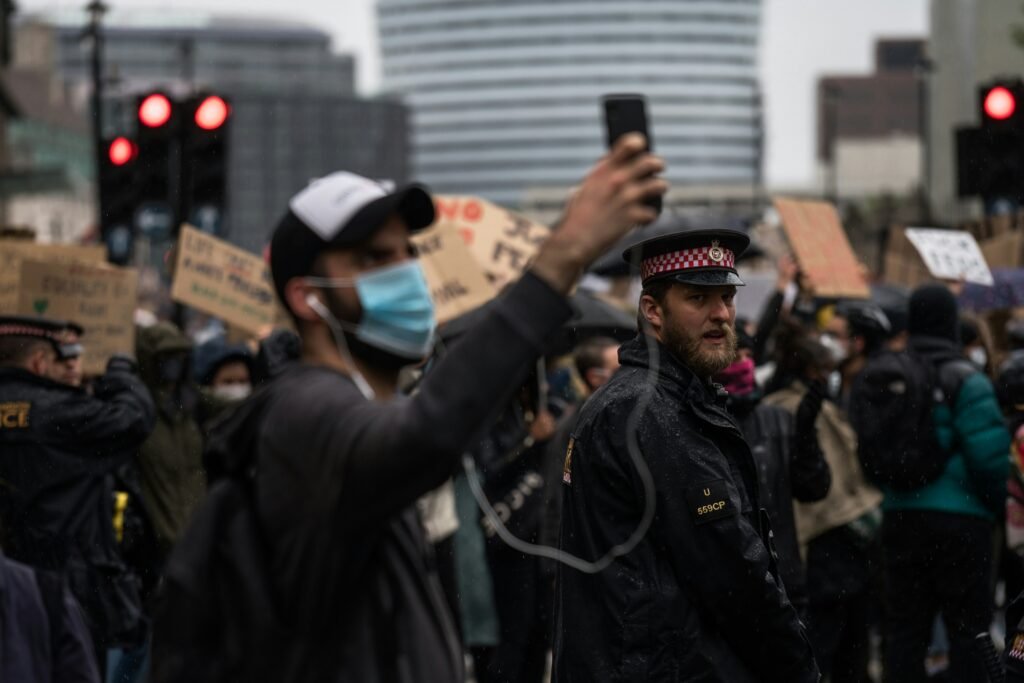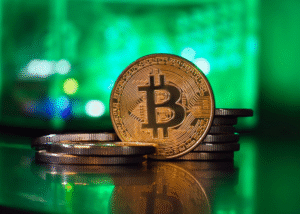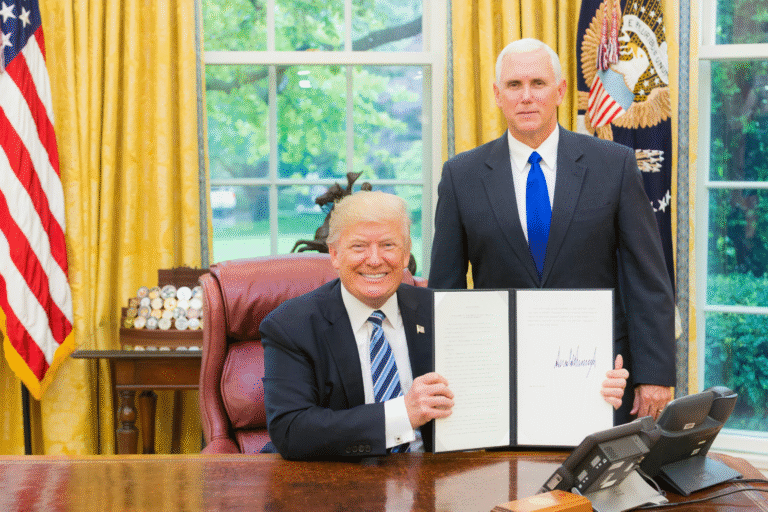
In London, the streets are bustling with activity as more than 2,000 Metropolitan Police officers are on duty to oversee a range of events, including the highly anticipated Champions League final at Wembley Stadium and multiple protests. This heightened police presence is part of an effort to manage the large crowds and potential unrest as football fans and demonstrators converge in the city.
The excitement for the Champions League final between Borussia Dortmund and Real Madrid is palpable, with fans gathering in various parts of London ahead of the 8pm kickoff. Amidst this, a controversial protest led by far-right activist Tommy Robinson is taking place at Parliament Square. Robinson, whose real name is Stephen Yaxley-Lennon, claims he is protesting against what he describes as “two-tier policing.” Meanwhile, a counter-protest organized by Stand Up To Racism is occurring nearby at Whitehall, with participants rallying against “racism and Islamophobia.”
The Metropolitan Police have noted that they have identified individuals in Robinson’s protest crowd who “have a history of being involved in violent disorder.” In a statement on X, they said, “A number have football banning orders and are associated with hooligan groups from London and across the UK. There is also an element of the crowd previously well known for involvement in anti-lockdown protests during the pandemic and associated disorder.” Despite the potential for conflict, the police reported that no offences had been committed so far, though they observed that “a number of people in the crowd are intoxicated. The event still has a number of hours left to go.”
As the day progresses, the Metropolitan Police are tasked with balancing the safety of football fans, protest participants, and the general public. The convergence of these large groups in London presents a significant challenge, requiring careful coordination and vigilance to prevent any escalation of violence.
The simultaneous events underscore the dynamic and often tense atmosphere in London, particularly on days when major sporting events coincide with political demonstrations. The police are focused on maintaining order and ensuring that the day proceeds without major incidents. With the Champions League final set to be a major draw for football enthusiasts and the protests highlighting deep societal issues, the city’s police force has a pivotal role in navigating this complex landscape.
As the evening approaches, all eyes will be on Wembley Stadium for the football match, while the protests will continue to be closely monitored by law enforcement. The outcome of both the game and the demonstrations will likely be the subject of much discussion in the days to come, reflecting the diverse and sometimes divided nature of London’s public life.












